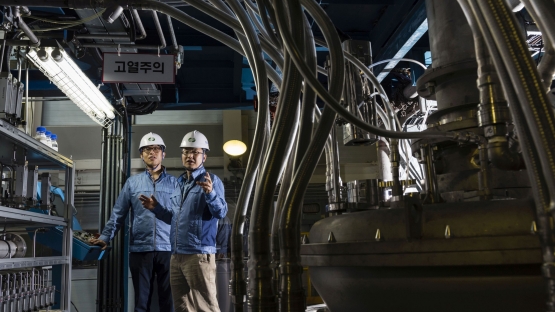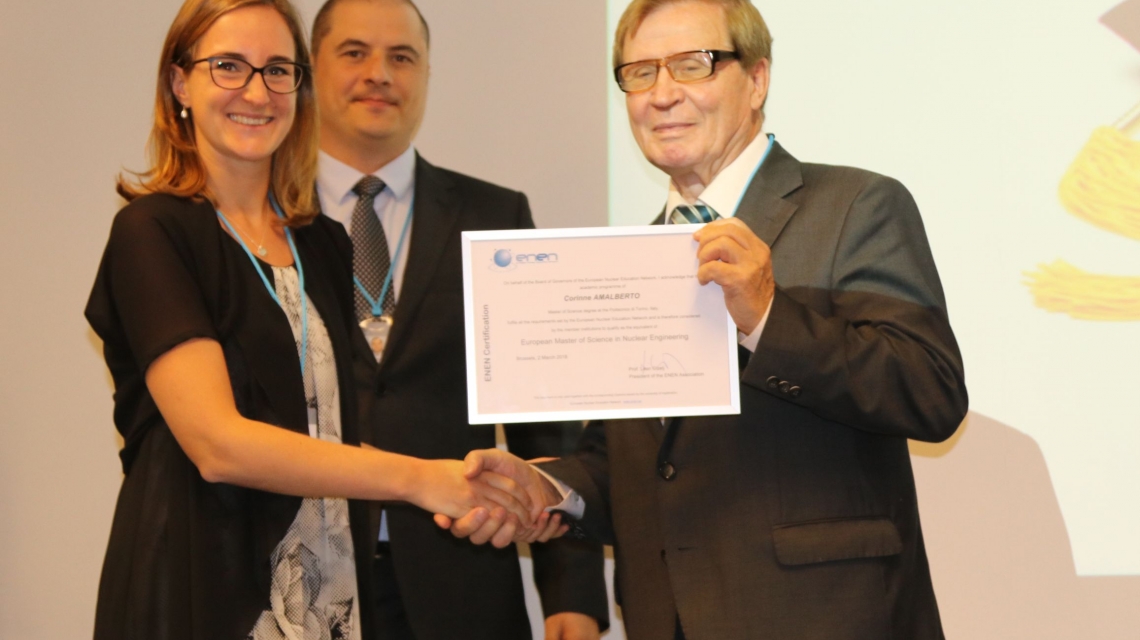Ensuring the transfer of knowledge between retiring and new members of the nuclear workforce is one of the industry’s most significant challenges. There is an increasing need for establishing successful retention, knowledge transfer and capacity building programmes, agreed veteran and young experts at an event held today on the sidelines of the IAEA’s 62nd General Conference.
The side event “Preparing Next Generation of Nuclear Workforce: sharing, sustaining and developing knowledge,” gathered about 120 participants focusing on knowledge transfer from across generations.
“Having worked as an operator for the good part of my career, I am well aware of the challenge of managing and retaining technical knowledge, in particular in newcomer countries and in those with an ageing nuclear workforce,” said Mikhail Chudakov, IAEA Deputy Director General and Head of the Department of Nuclear Energy. “Continued education and training is key to ensuring the availability of competent nuclear managers and leaders.”
The event brought together representatives from the International Union of Veterans of Nuclear Energy and Industry (IUVNEI), youth organizations such as the United Nations Nuclear Young Generation (UN–NYG), the European Nuclear Education Network Association (ENEN), and the European Nuclear Society (ENS) to discuss opportunities for collaboration in this area.
Participants emphasized the importance of building knowledge transfer programmes with a strong focus on mentoring and leadership development, utilizing the IAEA’s capacity building mechanisms and exchange platforms. Representatives from the Czech Republic, Indonesia, Lithuania and Russia shared their experience in this area.
IUVNEI President Pavel Ipatov said that the acceptance of nuclear technology was essential for its further development: “Nuclear industry veterans play a crucial role in transferring the substantial knowledge obtained over decades and building an open dialogue with the public to answer their concerns.”
The young generation in the nuclear sector shared some of the ways in which they contribute to knowledge transfer and leadership development, including mentorship programmes, soft skill seminars, multi‑cultural integration, and sharing of best practices.
“Young generation networks provide an engaging medium for the senior professionals to interact directly with their younger peers and understand their challenges and needs,” said Chirayu Batra, President of the United Nations – Nuclear Young Generation (UN–NYG). “Such networks are not only pivotal in preparing the next generation professionals and leaders, but also provide a momentum to the whole nuclear industry.
Nuclear power is a long term commitment and requires an integrated approach for its sustainable development as lifetime operation of a nuclear power plant involves a few consecutive generations of professionals.
“We are using innovative ways to keep and transfer the critical knowledge accumulated over the past six decades of nuclear power operation,” said David Drury, Head of the IAEA’s Nuclear Knowledge Management Section. “This will help ensure the safety and sustainability of this low carbon energy source.”
The IAEA has long been facilitating collaboration for knowledge sharing between senior and young professionals through conferences, workshops, and various novel and cost efficient educational activities such as e-Learning and digital hubs.




